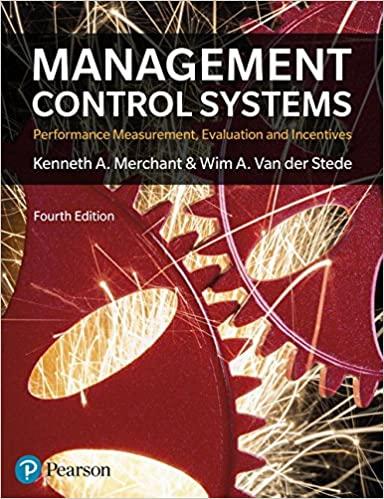Question
Judy Billows, owner of Billows Manufacturing has called a meeting with her department heads. She presents last year's contribution margin income statement (see below), which
Judy Billows, owner of Billows Manufacturing has called a meeting with her department heads. She presents last year's contribution margin income statement (see below), which is based on a sales volume of 100,000 units (one product offering) and operating income of $125,000. She issues a challenge to her vice presidents to increase operating income in the next year by 20% to $150,000. The VP of Marketing states that if the sales price were reduced by 10% to $22.50 per unit, the sales volume could increase to 125,000 units, thereby increasing Revenue by 12.5% to $2,812,500, generating an additional $312,500 to meet the challenge. Unsure about this statement, Judy asks for options from the VP of Manufacturing, who responds that if they were allowed to purchase a new piece of equipment for $500,000 with a 10 year useful life, while annual fixed costs would increase by $50,000 a year, the resulting automation would result in a $0.61 per unit (about 5%) decrease in total variable costs. (Note the increase in costs includes all new costs, including depreciation on the new equipment)
Prior year Contribution Margin statement:
Sales Revenue $25 per unit $2,500,000
Variable Costs $12.25 per unit 1,225,000
Contribution Margin $12.75 per unit 1,275,000
Fixed Costs 1,150,000
Operating Income $125,000
1) With your knowledge of variable and fixed cost behavior and using cost-volume-profit analysis, please respectfully explain to Judy and the VP of Marketing why the 10% reduction in the sales price resulting in an increase in volume to 125,000 units will not, by itself, result in an increase in operating income of $312,500.
2) Provide a brief summarized memo to discuss if a combination plan to decrease the sales price (resulting in an increase in volume) and the purchase of new equipment for automating the manufacturing process will support the increase in operating income to the desired $150,000 level. Consider how the risk of the organization changes with a change in the cost structure, what happens if the expected volume is not achieved? Support your comments with a financial analysis.
3) In your thread response to your colleagues, make suggestions for improving their analysis or explanation (for instance can you point out any additional risks or nonfinancial factors that should be considered).
Step by Step Solution
There are 3 Steps involved in it
Step: 1

Get Instant Access to Expert-Tailored Solutions
See step-by-step solutions with expert insights and AI powered tools for academic success
Step: 2

Step: 3

Ace Your Homework with AI
Get the answers you need in no time with our AI-driven, step-by-step assistance
Get Started


